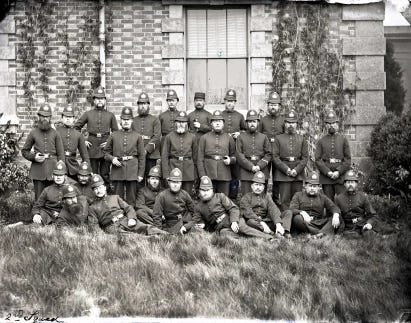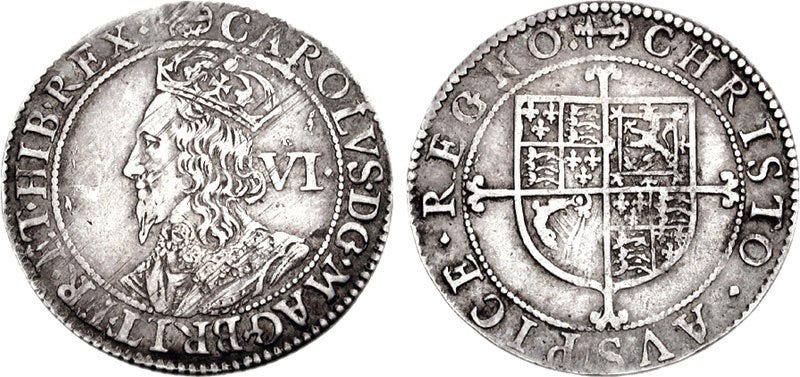YouTube Audio Book: 33:55- end
“I confess that so far, Watson, I had been disappointed in my investigation. I had reckoned upon solving the matter when once I had found the place referred to in the Ritual; but now I was there, and was apparently as far as ever from knowing what it was which the family had concealed with such elaborate precautions. It is true that I had thrown a light upon the fate of Brunton, but now I had to ascertain how that fate had come upon him, and what part had been played in the matter by the woman who had disappeared. I sat down upon a keg in the corner and thought the whole matter carefully over.
“You know my methods in such cases, Watson. I put myself in the man’s place and, having first gauged his intelligence, I try to imagine how I should myself have proceeded under the same circumstances. In this case the matter was simplified by Brunton’s intelligence being quite first-rate, so that it was unnecessary to make any allowance for the personal equation, as the astronomers have dubbed it. He knew that something valuable was concealed. He had spotted the place. He found that the stone which covered it was just too heavy for a man to move unaided. What would he do next? He could not get help from outside, even if he had some one whom he could trust, without the unbarring of doors and considerable risk of detection. It was better, if he could, to have his helpmate inside the house. But whom could he ask? This girl had been devoted to him. A man always finds it hard to realize that he may have finally lost a woman’s love, however badly he may have treated her. He would try by a few attentions to make his peace with the girl Howells, and then would engage her as his accomplice. Together they would come at night to the cellar, and their united force would suffice to raise the stone. So far I could follow their actions as if I had actually seen them.
“But for two of them, and one a woman, it must have been heavy work the raising of that stone. A burly Sussex policeman and I had found it no light job. What would they do to assist them? Probably what I should have done myself. I rose and examined carefully the different billets of wood which were scattered round the floor. Almost at once I came upon what I expected. One piece, about three feet in length, had a very marked indentation at one end, while several were flattened at the sides as if they had been compressed by some considerable weight. Evidently, as they had dragged the stone up they had thrust the chunks of wood into the chink, until at last, when the opening was large enough to crawl through, they would hold it open by a billet placed lengthwise, which might very well become indented at the lower end, since the whole weight of the stone would press it down on to the edge of this other slab. So far I was still on safe ground.

“And now how was I to proceed to reconstruct this midnight drama? Clearly, only one could fit into the hole, and that one was Brunton. The girl must have waited above. Brunton then unlocked the box, handed up the contents presumably—since they were not to be found—and then—and then what happened?
“What smouldering fire of vengeance had suddenly sprung into flame in this passionate Celtic woman’s soul when she saw the man who had wronged her—wronged her, perhaps, far more than we suspected—in her power? Was it a chance that the wood had slipped, and that the stone had shut Brunton into what had become his sepulchre? Had she only been guilty of silence as to his fate? Or had some sudden blow from her hand dashed the support away and sent the slab crashing down into its place? Be that as it might, I seemed to see that woman’s figure still clutching at her treasure trove and flying wildly up the winding stair, with her ears ringing perhaps with the muffled screams from behind her and with the drumming of frenzied hands against the slab of stone which was choking her faithless lover’s life out.
“Here was the secret of her blanched face, her shaken nerves, her peals of hysterical laughter on the next morning. But what had been in the box? What had she done with that? Of course, it must have been the old metal and pebbles which my client had dragged from the mere. She had thrown them in there at the first opportunity to remove the last trace of her crime.
“For twenty minutes I had sat motionless, thinking the matter out. Musgrave still stood with a very pale face, swinging his lantern and peering down into the hole.
“‘These are coins of Charles the First,’ said he, holding out the few which had been in the box; ‘you see we were right in fixing our date for the Ritual.’

“‘We may find something else of Charles the First,’ I cried, as the probable meaning of the first two questions of the Ritual broke suddenly upon me. ‘Let me see the contents of the bag which you fished from the mere.’
“We ascended to his study, and he laid the débris before me. I could understand his regarding it as of small importance when I looked at it, for the metal was almost black and the stones lustreless and dull. I rubbed one of them on my sleeve, however, and it glowed afterwards like a spark in the dark hollow of my hand. The metal work was in the form of a double ring, but it had been bent and twisted out of its original shape.
“‘You must bear in mind,’ said I, ‘that the Royal party made head in England even after the death of the King, and that when they at last fled they probably left many of their most precious possessions buried behind them, with the intention of returning for them in more peaceful times.’
“‘My ancestor, Sir Ralph Musgrave, was a prominent Cavalier and the right-hand man of Charles the Second in his wanderings,’ said my friend.
“‘Ah, indeed!’ I answered. ‘Well now, I think that really should give us the last link that we wanted. I must congratulate you on coming into the possession, though in rather a tragic manner of a relic which is of great intrinsic value, but of even greater importance as an historical curiosity.’
“‘What is it, then?’ he gasped in astonishment.
“‘It is nothing less than the ancient crown of the Kings of England.’
“‘The crown!’
“‘Precisely. Consider what the Ritual says: How does it run? “Whose was it?” “His who is gone.” That was after the execution of Charles. Then, “Who shall have it?” “He who will come.” That was Charles the Second, whose advent was already foreseen. There can, I think, be no doubt that this battered and shapeless diadem once encircled the brows of the royal Stuarts.’
“‘And how came it in the pond?’
“‘Ah, that is a question that will take some time to answer.’ And with that I sketched out to him the whole long chain of surmise and of proof which I had constructed. The twilight had closed in and the moon was shining brightly in the sky before my narrative was finished.
“‘And how was it then that Charles did not get his crown when he returned?’ asked Musgrave, pushing back the relic into its linen bag.
“‘Ah, there you lay your finger upon the one point which we shall probably never be able to clear up. It is likely that the Musgrave who held the secret died in the interval, and by some oversight left this guide to his descendant without explaining the meaning of it. From that day to this it has been handed down from father to son, until at last it came within reach of a man who tore its secret out of it and lost his life in the venture.’
“And that’s the story of the Musgrave Ritual, Watson. They have the crown down at Hurlstone—though they had some legal bother and a considerable sum to pay before they were allowed to retain it. I am sure that if you mentioned my name they would be happy to show it to you. Of the woman nothing was ever heard, and the probability is that she got away out of England and carried herself and the memory of her crime to some land beyond the seas.”



